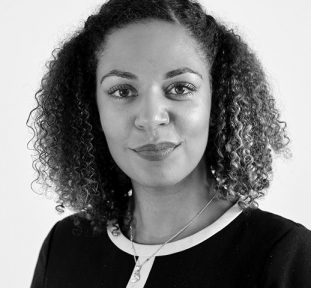Non-Court Dispute Resolution
As a forward-thinking chambers, 3PB Barristers has a range of solutions to help you resolve your relationship disputes through our Non-Court-Dispute-Resolution (NCDR) options. The idea of entering a courtroom can be daunting for families facing separation or divorce. Many find that NCDR offers more constructive, efficient and less costly path to resolution.
Whilst not mandatory, from April 2024, the Family Procedure Rules Part 3 and Part 28 require the parties to explain to the court why NCDR is not being used to resolve disputes. The court can use its powers to adjourn the case to NCDR. Consideration of NCDR by the parties and their legal advisors is crucial at an early stage.
We are recognised as market leaders and have a range of barristers from King’s Counsel to Junior Counsel, with many who hold judicial appointments or sit as qualified arbitrators. At 3PB Barristers we are committed to supporting families with clarity, fairness and compassion. We have seven centres across the country in London, Birmingham, Bournemouth, Bristol, Manchester, Oxford and Winchester. We are able to host NCDR in our local centres or other suitable alternative premises. As the third largest chambers in the country, we have suitable counsel throughout the length and breadth of the country.
Using NCDR offers greater control, speed, privacy and dignity. Whilst court proceedings may still be necessary in some cases, the alternatives are recognised by judges and practitioners alike as trusted solutions for resolving family disputes in a less adversarial way.
Each approach offers a route to reach a fair outcome, with less conflict, greater privacy and more control over the process. If you are considering separation or navigating post-divorce issues, these approaches could save time, money and the emotional strain of court proceedings.
Refreshments and lunch will be provided during the course of the day if selecting NCDR. The clerks’ hospitality and welcome at 3PB sets it apart and client care, along with value for money are at the heart of the process. By choosing 3PB NCDR you are engaging with a pre-eminent barrister’s chambers at the cutting edge of developments in Family Law in England and Wales.
Mediation: Finding Common Ground
In mediation the parties come together with a trained, neutral mediator who helps to facilitate constructive dialogue. The mediator, rather than making the decisions for you, guides you to find your own agreements. Mediation is suitable for financial arrangements in divorce and separation, assisting to resolve disputes concerning children and parenting.
Mediation is voluntary but is increasingly encouraged by the courts. It is confidential and non-adversarial. It can be especially helpful for ongoing co-parenting relationships.
More information can be found here.
Private Financial Dispute Resolution, pFDR: Expert-led settlement
As part of the financial remedies’ framework, a Private Financial Dispute Resolution, or pFDR as they are usually termed, takes place to assist the parties to reach a settlement. It is confidential and a tailored alternative to a court hearing. An experienced family law barrister reads the papers and hears from each party’s representative and provides a clear, realistic view of what a court would likely decide.
It is like an FDR at court. The advantages of a pFDR are that your evaluator will be assigned to you for the day. You can list the case at a time and venue to suit you. It encourages the early settlement of financial issues.
More information can be found here.
Arbitration: A Binding Decision by a qualified expert
Arbitration is a private legal process where both parties agree to appoint a qualified arbitrator to make a binding decision on the issues in a case. A financial remedies arbitration will cover the division of assets, maintenance, pensions, trusts and other assets. A children arbitration will consider issues such as, living arrangements, schooling, holidays, internal or external relocation.
The decisions are legally binding and enforceable; like a court order. The arbitrator’s decision is converted into a court order and lodged with the court. Arbitration is totally confidential, unlike court proceedings where the press are permitted to attend.
The arbitrator and the parties can agree a bespoke approach to the arbitration. This could be a single-issue arbitration or even an arbitration on the papers, if the case is a simple dispute.
If court proceedings are in progress, they can be put on hold to enable arbitration to take place.
All our arbitrators are members of the Chartered Institute of Arbitrators “CIArb” and the Institute of Family Law Arbitrators “IFLA”.
More information can be found here.
Early Neutral Evaluation – ENE – An indication from a legal expert
A useful tool to consider is Early Neutral Evaluation before entering costly and contentious proceedings. An evaluator will have extensive experience in either financial remedies disputes, including cohabitation disputes, or Private Law Children cases. The ENE process can cover Inheritance Act cases and contentious probate. The evaluator provides an opinion on the likely outcome if the case were to go to court.
In Trust of Land Appointment of Trustee Act (TLATA) cases the neutral evaluator can save considerable expense and uncertainty. These cases lend themselves to the ENE process.
In Private Law Children disputes, ENE can provide a view on the outcome, much like a Dispute Resolution Appointment “DRA” before the court.
More information can be found here.
3PB Bespoke
Using 3PB Bespoke, you can ensure a cost-effective way to manage your case from start to finish. You can set the timetable and know that you have a mediator/ENE/private-FDR evaluator available and if the case is not resolved by agreement, an arbitrator can be allocated to decide the case.
New forms of NCDR - settlement meetings and working with a lawyer and psychologist
At 3PB we have developed two other forms of NCDR that are particularly suited to the more complex cases. They are, firstly, settlement meetings and, secondly, NCDR where a member of chambers works with a psychologist to resolve issues. Both are applicable to financial, child-related or other family issues.
Settlement meetings involve the parties, typically with their legal teams, meeting together with a member of our chambers to resolve their family issues through discussion and negotiation. In style, they are similar to Private FDRs but can take place at any point following the couple's separation. They are equally effective in matters relating to children or other family issues. Unlike mediation (including lawyer-assisted mediation), they are not merely facilitative meetings - they are intended for negotiation and resolution.
Meetings with a member of chambers and a psychologist replicate a method of working that is used very successfully in many other countries (such as Scandinavian countries, Australia, Germany and Canada). They involve a lawyer/mediator working with an eminent psychologist to help couples resolve family issues, whilst ensuring that their emotional and psychological needs are heard and they are able to leave the process of separation emotionally intact.































































































